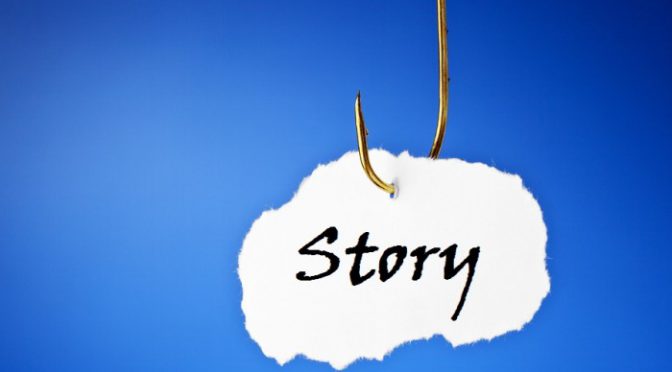The first sentence of your story can be the most important you ever write. It may not be the most profound, the most interesting, or the most eloquent – but that really doesn’t matter. It starts the first paragraph, which starts the first page of the first chapter. It’s the first of a series of barriers you have to cross to truly draw someone in. Though rarely enough to chase someone away, it starts something that will carry you through to the end.
And you probably just winged it.
The reason these things are so important is that it does more than simply start off your story. I’ve already talked about beginnings being a pain in the ass, but the earlier in the story you are, the less there is of the story to give context and substance. As such, that first sentence, the first paragraph, and the first page are essentially you pitching the rest of the story to the reader. Even in visual formats like comics and films, the first shots are going to tell the viewer whether they want to even sit through any of it. And that means, despite the fact it’s generally one of the hardest sections to write for some people, it’s also one of the few sections that matters on its own.
No pressure, right?
Reeling Them In
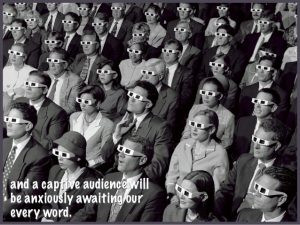
It’s true for all forms of entertainment – the opening will determine if you’re invested for the rest. A poor opening will tell someone to put the book back on the shelf, change the channel, close the browser or shut off the movie. If they’ve already paid their money, they may stick it out to get their value, or just to see how far the rabbit hole goes, but that opening moment will determine whether or not they’re there for the right reasons. The thing is, it’s not because people are quick to judge (though we are), it’s because that opening is the first look at what they’re in for.
It’s the thing that we’re signaled was chosen by the creator as the way they want you to think about everything to follow. And so we’re not just judging for ourselves, we’re also making a guess at the judgment of the creator as well. As a result, some of the most iconic lines and scenes have come from the opening of a story from “A long time ago, in a galaxy far, far away” to “It was the best of times, it was the worst of times”. Despite not saying a whole lot on their own, they indicate something about everything to follow, and they make you read the next paragraph or watch that opening crawl.
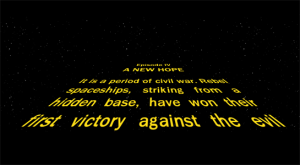
The sad thing is, I can’t actually sit here and tell you how to write a good hook to open your story with. I know a lot of people have tried to tell everyone how to write good hooks in the past. But, truthfully, there’s really no guaranteed way to make sure people are going to be drawn in. That doesn’t necessarily mean it’s hopeless. Certain things are likely to catch people’s attention, especially if you know the sort of mood you’re going for. I once heard from a few successful authors that they liked to make the reader feel as though they just dropped into the middle of something huge and, generally, this works if you’re doing something that requires some intensity or an epic feel.
But for the rest, a lot of it is about determining who you’re hoping the audience is. Everyone secretly wants to be the author who captures the attention of all readers, but the truth is that doing so is more difficult than anyone could imagine. Despite how popular a lot of classics are today, there are people who can’t stand Lord of the Rings, refuse to read Crime & Punishment, or who just can’t make it through any of the works of Mark Twain. One of my favorite books in high school was actually The Great Gatsby, and I’ve repeatedly heard of it described as “that book I read only because I was forced to”. And, despite being a huge sci-fi nerd, I’ve always preferred Issac Asimov’s non-fiction work to his fiction and am well aware I am in a vast minority. The point is: you can’t hit everyone the same way, so don’t even try because any attempt to do it will come off cliche.
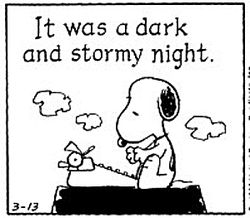
And this means a lot about what you should be writing in the first chapters of your big story. A rule of thumb that I’ve heard from several readers is that they’ll know if they finish a book or not by how they feel about the first four chapters. This is a fair metric, given that’s enough time for the author to introduce the characters, setting, and conflict in most instances. But the point of the hook is to get those people to read those first four chapters. Before you’ve had a chance to connect with the audience with your stories and character, you have an opportunity to connect with them on one thing in that first page – tone.
In the first few sentences you have an opportunity to set tone before anything else can come. A funny line off the top will give them an idea that you’re writing a comedy. A darker line will tell them to be ready for something intense. And a fantastic line will give them a sign to expect something… well, fantastic. And this is something you have to decide on specifically for the people you’re hoping to draw in, whoever they may be. If you have multiple tones that you’re expecting to lay out over the course of the story, you can filter those in through the rest of that beginning. But the tone you set with the first sentence? That’s your core.
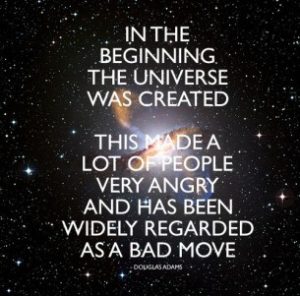
This doesn’t mean you have to remain steadfast on a tone throughout the rest of the story, I’ve already covered how silly that idea is in the past. But what it does mean is that when you open the story you’re going to be telling the audience what you intend to give them for at least the foreseeable future. In a way, not only are you telling the audience what to expect in those opening pages, but you’re also choosing who your audience is as you write it. For all the pressure of trying to please your audience, the end result is that your audiences will only ever be the people who liked what they saw.
And that’s why it’s nearly impossible to tell you what a good hook will look like. A good hook will be whatever fits the person you want to stick around. A good hook is the line that’ll lead into the rest of the story and tell those people what kind of story it’s going to be. But a bad hook? That’s a little easier to define.
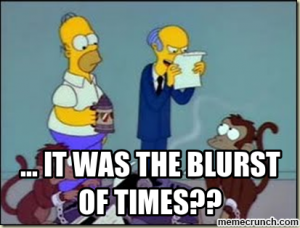
A bad hook is an opening that doesn’t reflect the story you intend to tell. This opening would scare off the audience you would want to keep but keeps the people who won’t like what you’re about to offer. A bad hook can also be something that doesn’t reflect anything at all. A story that starts off lacking context and tone may never hold anyone for those next four chapters. And a bad hook is something that tries to hit a tone but fails, identifying that maybe you didn’t know where you were going at first. But these, fortunately, are all lines you’ll realize don’t work with a simple glance.
So, just remember that: it’s easy to identify the bad hooks, and the good hooks are always going to be whatever lines manage to get the audience you want. If you write with that audience in mind, you’re likely to hit it. And, if you do it really well, that audience is going to have that moment stick with them forever. Because when you think back on your favorite lines from certain works, often times…
Those first moments will be the ones to last the longest.
(I write novels. I opened my first book with a flashback. I honestly have no idea if that was the right decision, but I made my bed years ago. Meanwhile, I practice good one-liners on twitter.)


